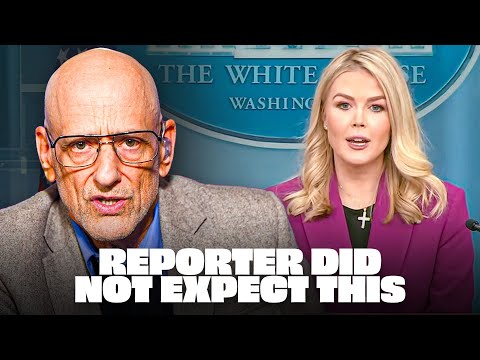In a world where trust is as rare as an honest politician, it seems journalists have managed to misplace theirs somewhere between the headlines and the obituaries. According to a Gallup poll, more than half of Americans feel that these media mavens are more slippery than a soap bar in a typhoon. The remaining folks may just be mixing up journalists with characters from a rerun of Matlock. It’s a messy entanglement between fact and fiction, or perhaps a testament to the charm of late-night detective dramas.
This collapsing trust isn’t for lack of effort on the media’s part, but perhaps too much of the wrong kind of effort—the kind that involves spinning stories faster than a DJ at a disco party. Even the White House Correspondents Association seems to be twiddling its ties uneasily. When the radiant Karoline Leavitt decided to crack down on legacy reporters, there was more shuffling and murmuring than at a high school homecoming dance. Even a certain Mr. McLlife, who seemed more interested in Leavitt’s perfume than politics, ended up forlornly acknowledging her brush-off with what could only be described as misguided enthusiasm.
Enter Swami Origami Umami, the unexpected hero, or perhaps jester, hired to sprinkle some pixie dust on journalism’s nearly extinguished candle. With a background in hypnotism and three-card monty, Umami has jumped from hustling tourists near a bus station to hustling for journalists in need of a spiritual lifeline. The Swami’s take is a whirlwind of hypnotic rhetoric, convincing listeners to believe that journalists have always been the centurions of truth. Forget Biden’s purported lapses or the two-year Russian novel turned soap opera; the media, he insists, has been doggedly unveiling truths every step of the way—or so the Swami would like the public to think, as they stare mindlessly into the middle distance.
Of course, no magical hypnosis is complete without a nod to prestigious awards, like those Pulitzer Prizes that found themselves in the hands of journalists who, Swami claims, deserve every gold-plated ounce. Funny how these awards seemed to honor what some might call fairy tales rather than facts, selling fantasy as reality under the guise of elite journalism. And let’s not forget how heroism was doled out during the COVID saga, branding certain figures as miraculously infallible while sweeping inconvenient truths under the proverbial rug.
In this topsy-turvy landscape where reality is often a suggestion rather than a guarantee, journalists might do well to remember that the truth doesn’t need a Swami to make it palatable. While some Americans might be compelled to quack like ducks under hypnosis, others are determined to stay awake, decoding what’s spun before it’s sold. Perhaps the real challenge lies in inspiring a collective awakening, one where viewers see past swinging watches to uncover a truth that no amount of press badges can hide.



